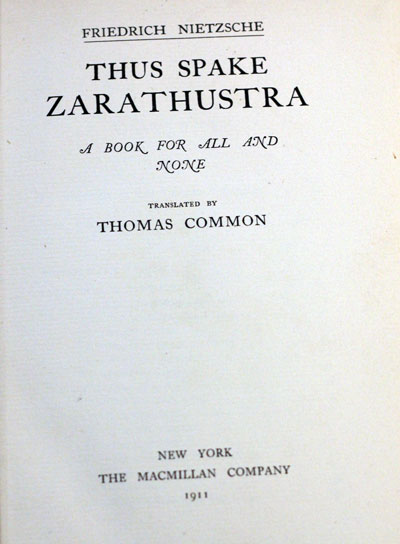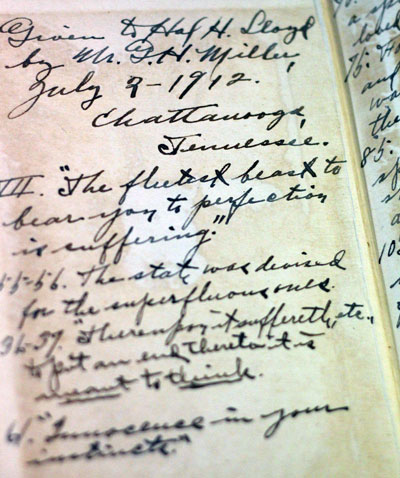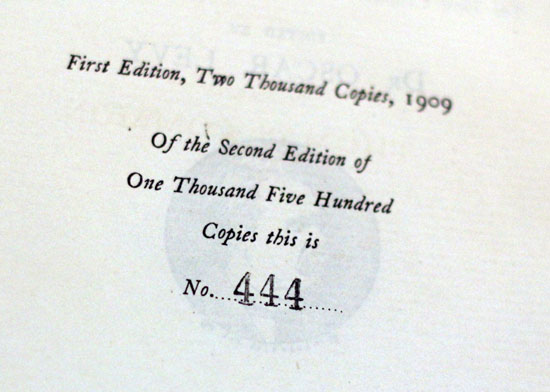Title: Thus Spake Zarathustra: A Book for All and None
Author: Friedrich Nietzsche, Translated by Thomas Common
Publisher: MacMillan, 1911. Second edition of the work, limited to 1,500 copies, of which this is number 444. Scarce.
Condition: Hardcover, blue cloth. Wear to top and bottom of spine, profusely annotated, some foxing, otherwise good. Tightly bound.
About the book (from Wikipedia):
Thus Spoke Zarathustra: A Book for All and None is a philosophical novel by German philosopher Friedrich Nietzsche, composed in four parts between 1883 and 1885. Much of the work deals with ideas such as the “eternal recurrence of the same”, the parable on the “death of God”, and the “prophecy” of the Übermensch, which were first introduced in The Gay Science.
The book chronicles the fictitious travels and speeches of Zarathustra. Zarathustra’s namesake was the Persian founder of Zoroastrianism, usually known in English as Zoroaster. Nietzsche is clearly portraying a “new” or “different” Zarathustra, one who turns traditional morality on its head. He goes on to characterize “what the name of Zarathustra means in my mouth, the mouth of the first immoralist.”
About Nietzsche (from Wikipedia):
Friedrich Wilhelm Nietzsche (15 October 1844 – 25 August 1900) was a German philologist, philosopher, cultural critic, poet and composer. He wrote several critical texts on religion, morality, contemporary culture, philosophy and science, displaying a fondness for metaphor, irony and aphorism.
Nietzsche’s key ideas include the Apollonian/Dionysian dichotomy, perspectivism, the Will to Power, the “death of God”, and eternal recurrence. One of the key tenets of his philosophy is the concept of “life-affirmation,” which embraces the realities of the world in which we live over the idea of a world beyond. It further champions the creative powers of the individual to strive beyond social, cultural, and moral contexts.His radical questioning of the value and objectivity of truth has been the focus of extensive commentary, and his influence remains substantial, particularly in the continental philosophical schools of existentialism, postmodernism, and post-structuralism. His ideas of individual overcoming and transcendence beyond structure and context have had a profound impact on late-twentieth and early-twenty-first century thinkers, who have used these concepts as points of departure in the development of their philosophies.







